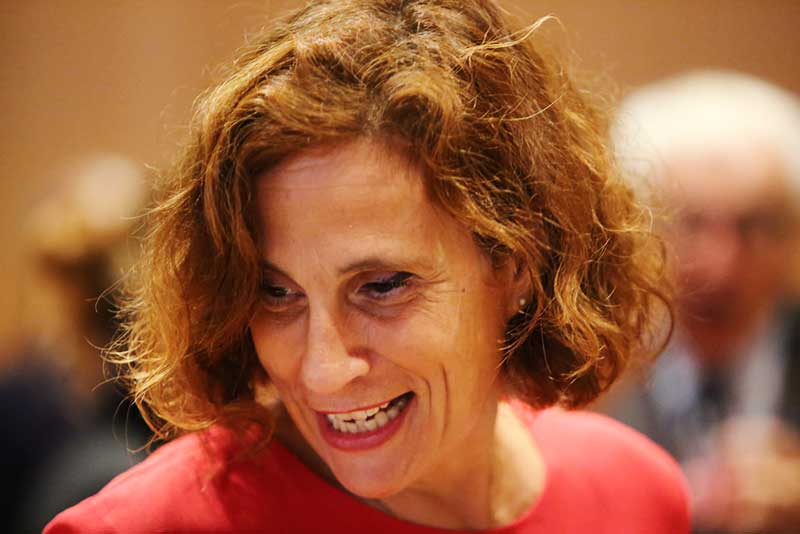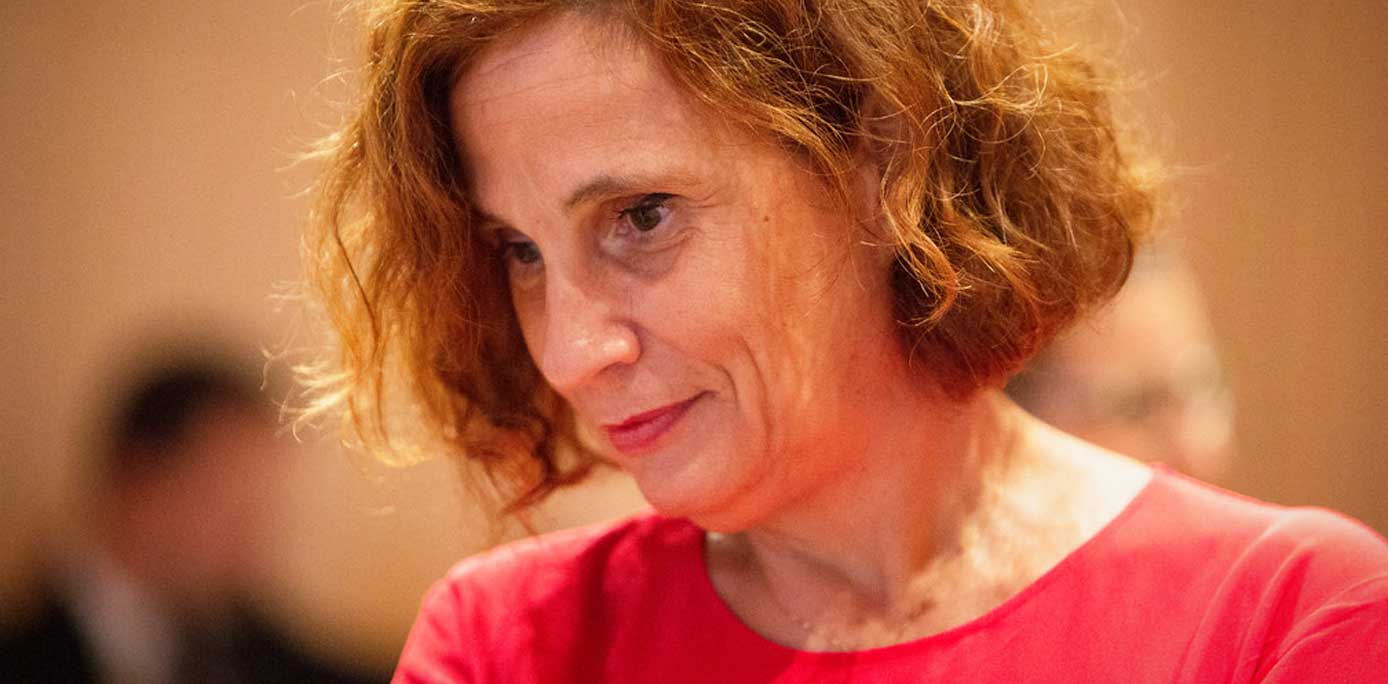One thing Italians have been reminded of during these first 20 days of coronavirus emergency is the quality and resilience of their healthcare system. Allow me to start this article with an enormous, heartfelt “thanks, guys” to all the nurses, doctors and other healthcare practitioners who are on the frontline battling il virus: they are amazing, they are strong, they need our support and all of our respect. If you have a friend or a relative in the healthcare professions, just tell them you love them, today.
It isn’t only the Italian healthcare system that deserves our praise and support, though, but the world of scientific research, too, both in name of the new pharmacological avenues followed to care for covid-19 patients and of the huge effort it has been making to understand its behavior better. Because it was only passed to humans around 5 months ago, the scientific world still has very little information about covid-19, especially when it comes to how long the infection could last in time or immunity, and Italy has begun working on epidemiological projects to help the world knowing more.
Vo’Euganeo, in the Padova province of Veneto, was one of the first two covid-19 clusters in Northern Italy and, sadly, also the hometown of the virus’ first victim, Adriano Trevisan. The entire village of 3.300 was quarantined for two weeks, while the rest of the country still wasn’t, making of it an excellent ground for scientific research. Shortly before the end of the initial quarantine (Vo’ is now, of course, on a lockdown as the rest of Italy), the University of Padova, with the support of the Regione Veneto and the Italian Red Cross, went on to test again the entire population of the village, which had already been largely tested at the beginning of the outbreak, in a bid to study the evolution of the novel coronavirus. The study is the first of its kind, says Nicola Rogero of local daily Il Mattino di Padova, as no one had thought to administer the test to the same sample at two different moments in time. Thanks to this, new, essential information on the virus’ behavior will emerge, including the infection and mortality rate, the rate of symptomatic and non-symptomatic patients, its regression curve and its actual duration. The University of Padova highlighted their research will also provide relevant information about the natural history of the virus, its transmission dynamics and a more in-depth understanding of at risk categories.

Ilaria Capua is a virologist and former Italian politician. Copyrights Fondazione Giannino Bassetti/Flickr
But the fight of Italian scientists against the coronavirus goes on also outside the boundaries of Italy, as in the case of virologist Ilaria Capua, departmental director of the Emerging Pathogens Institute at the University of Florida. Capua has been a welcome and pleasant fixture on Italian tv screens in the recent weeks, always delivering clear, scientific information and advice to the general public. She recently talked with Ilaria Ulivelli of La Nazione, Florence’s daily, and discussed a series of important aspects of the Covid-19 infection. Talking about the current lockdown in Italy and of its essentiality, she says: “it’s like a tornado arrived all of a sudden, but we can come out of this, if we do it together. Social distancing (quarantine) will help us protect people more at risk and avoid they get infected.”
Capua also weighed in on the real reason the number of infections in Italy, especially in the first two regions being hit, Lombardia and Veneto, has been so high: “Lombardia and Veneto’s healthcare systems are extremely efficient: they had patients with suspect symptoms, they tested them. They looked for the virus and they found it,” she declares. But one of the most interesting things she discussed in her interview with Ulivelli is the idea, unfortunate but common at the moment, that Italy is the West’s great spreader: “the problem will soon disappear, because it’s just not true (that Italy brought the virus to the West). Our politicians should really understand this stigma — which Italy risks to drag along with her for a long time — actually doesn’t exist, but they also need to understand we have to reveal to the international scientific community all the sequencing of the virus we discovered. We can’t keep relevant information like that just for ourselves if we want to get rid of the ‘spreader’ reputation.” According to Capua, sequencing is like the ID card of a virus and helps study its behaviour. That’s why it would be crucial for all the scientific world to collaborate and share this type of information.
In spite of being in the eye of the storm, Italy hangs in there with pride and resilience, news of our doctors and scientists doing an amazing job — and being praised around the world — giving us hope. Dr Capua said something incredibly important in her interview, when she mentioned how scientific research, one of our excellencies, can help shake off the “spreader” stigma from our shoulders. She is right, and it shouldn’t be true only for our scientific research, but for everything our country is known for: the arts, food, technology, pharmaceuticals, you name it. Our excellencies are our protection from stigma and we have a duty, as Italians, to support and protect them from damage, to make them even more popular, more coveted.
So, when you go to the supermarket, tomorrow, make sure your olive oil is made in Italy, even if it’s a bit more expensive, and do wear your Italian pride on your sleeve: we need to show the world we are united, that we are, indeed, a great nation, especially when harshness comes.
Una cosa che gli italiani hanno ben chiaro in questi primi 20 giorni di emergenza Coronavirus è la qualità e la resistenza del loro sistema sanitario. Permettetemi di iniziare questo articolo con un enorme, sentito “grazie, ragazzi” a tutti gli infermieri, i medici e gli altri operatori sanitari che sono in prima linea nella lotta contro il virus: sono incredibili, sono forti, hanno bisogno del nostro sostegno e di tutto il nostro rispetto. Se avete un amico o un parente nelle professioni sanitarie, dite loro che gli volete bene, oggi.
Ma non è solo il sistema sanitario italiano a meritare il nostro elogio e il nostro sostegno, ma anche il mondo della ricerca scientifica, sia in nome delle nuove strade farmacologiche seguite per la cura dei pazienti con Covid-19, sia per l’enorme sforzo fatto per comprendere meglio il suo comportamento. Poiché è stato trasmesso all’uomo appena 5 mesi fa, il mondo scientifico ha ancora pochissime informazioni sul Covid-19, soprattutto per quanto riguarda la durata dell’infezione o l’immunità, e l’Italia ha iniziato a lavorare a progetti epidemiologici per aiutare il mondo a saperne di più.
Vo’ Euganeo, nella provincia veneta di Padova, è stato uno dei primi due cluster di Covid-19 del Nord Italia e, purtroppo, anche la città natale della prima vittima del virus, Adriano Trevisan. L’intero paese di 3.300 abitanti è stato messo in quarantena per due settimane, mentre il resto del Paese non lo era ancora, il che lo ha reso un ottimo terreno di ricerca scientifica. Poco prima della fine della prima quarantena (Vo’ è ora, ovviamente, di nuovo in isolamento come il resto d’Italia), l’Università di Padova, con il sostegno della Regione Veneto e della Croce Rossa Italiana, ha sottoposto nuovamente al test l’intera popolazione del paese, già ampiamente testata all’inizio dell’epidemia, nel tentativo di studiare l’evoluzione del nuovo Coronavirus. Lo studio è il primo nel suo genere, dice Nicola Rogero del quotidiano locale Il Mattino di Padova, poiché nessuno aveva pensato di somministrare il test allo stesso campione in due momenti diversi. Grazie a questo, emergeranno nuove informazioni essenziali sul comportamento del virus, tra cui il tasso di infezione e di mortalità, il tasso di pazienti sintomatici e asintomatici, la curva di regressione e la sua durata effettiva. L’Università di Padova ha evidenziato che la ricerca fornirà anche informazioni rilevanti sulla storia naturale del virus, sulle sue dinamiche di trasmissione e darà una più approfondita comprensione delle categorie a rischio.
Ma la lotta degli scienziati italiani contro il Coronavirus continua anche fuori dai confini italiani, come nel caso della virologa Ilaria Capua, direttrice del dipartimento dell’Emerging Pathogens Institute dell’Università della Florida. Nelle ultime settimane Capua è stata un gradito e piacevole appuntamento sugli schermi televisivi italiani, che ha sempre fornito informazioni e consigli chiari e scientifici al grande pubblico. Recentemente ha parlato con Ilaria Ulivelli de La Nazione, il quotidiano di Firenze, e ha discusso una serie di aspetti importanti dell’infezione da Covid-19. Parlando dell’attuale isolamento in Italia e di quanto questo sia essenziale, ha detto: “E’ come se fosse arrivato all’improvviso un tornado, ma possiamo uscirne, se lo facciamo insieme”. Il distanziamento sociale (quarantena) ci aiuterà a proteggere le persone più a rischio e ad evitare che si infettino”.
Capua ha anche espresso una valutazione sul vero motivo per cui il numero di infezioni in Italia, soprattutto nelle prime due regioni colpite, Lombardia e Veneto, è stato così alto: “I sistemi sanitari lombardi e veneti sono estremamente efficienti: hanno avuto pazienti con sintomi sospetti, li hanno testati. Hanno cercato il virus e l’hanno trovato”, ha dichiarato. Ma una delle cose più interessanti di cui ha parlato nella sua intervista con Ulivelli è l’idea, sfortunata ma comune al momento, che l’Italia sia il grande Untore dell’Occidente: “Il problema scomparirà presto, perché non è vero (che l’Italia ha portato il virus in Occidente). I nostri politici dovrebbero davvero capire che questo stigma – che l’Italia rischia di trascinarsi dietro per molto tempo – in realtà non esiste, ma devono anche capire che dobbiamo rivelare alla comunità scientifica internazionale tutte le sequenze genetiche del virus che abbiamo scoperto. Non possiamo tenere informazioni rilevanti come questa solo per noi se vogliamo liberarci della reputazione di ‘untori’”. Secondo Capua, il sequenziamento è come la carta d’identità di un virus e aiuta a studiarne il comportamento. Ecco perché sarebbe fondamentale per tutto il mondo scientifico collaborare e condividere questo tipo di informazioni.
Nonostante l’Italia sia nell’occhio del ciclone, l’Italia resiste con orgoglio e forza, la notizia che i nostri medici e scienziati stanno facendo un lavoro straordinario – e sono stati elogiati in tutto il mondo – ci dà speranza. La dottoressa Capua ha detto qualcosa di incredibilmente importante nella sua intervista, quando ha accennato a come la ricerca scientifica, una delle nostre eccellenze, possa aiutare a scrollarsi di dosso lo stigma di essere degli “untori”. Ha ragione, e non dovrebbe essere vero solo per la nostra ricerca scientifica, ma per tutto ciò per cui il nostro Paese è conosciuto: le arti, il cibo, la tecnologia, la farmaceutica, eccetera. Le nostre eccellenze sono la nostra protezione dallo stigma e abbiamo il dovere, da italiani, di sostenerle e proteggerle da ogni danno, di renderle ancora più popolari, più ambite.
Quindi, quando andate al supermercato, domani, fate in modo che il vostro olio d’oliva sia fatto in Italia, anche se è un po’ più costoso, e portate il vostro orgoglio italiano addosso: dobbiamo dimostrare al mondo che siamo uniti, che siamo davvero una grande nazione, soprattutto quando arrivano i tempi duri.






























